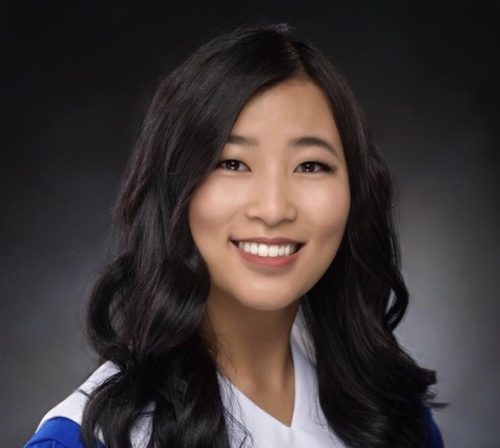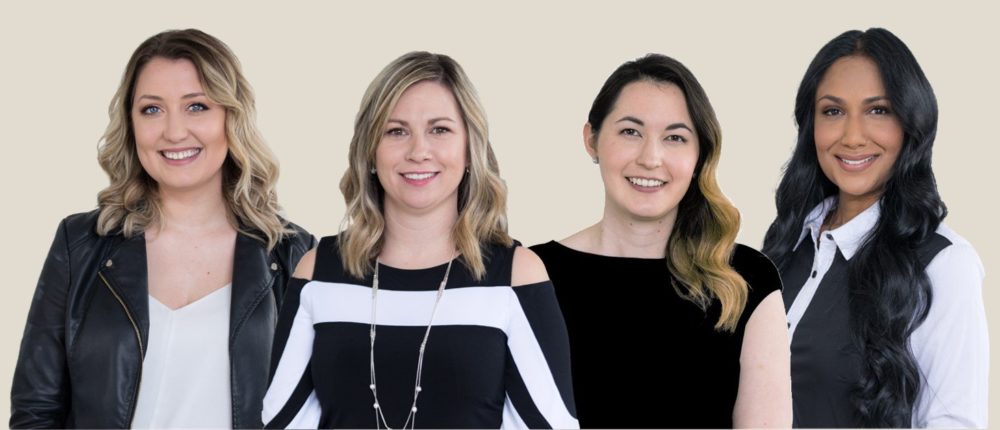
Grace Coleman feels a bit like a STEM pioneer, but she’s not entirely alone, particularly with International Women’s Day approaching. The first-year science student at the University of Guelph says her academic path has been smoothed by an inaugural scholarship from a local skincare company, one whose roots lie in a serendipitous discovery in a U of G physics lab.
She received this year’s Veriphy Skincare Scholarship for Women in STEM, a new annual award intended to encourage young women to pursue studies in science, technology, engineering and mathematics at U of G.
Last fall’s $1,000 award came at a good time for Coleman, who arrived on campus from her hometown Halifax.
“I am solely responsible for paying for my own education,” she said. “The Veriphy scholarship is part of the much-appreciated funding I need to get to the Class of 2022 finish line.”
The award is offered by Veriphy Skincare, a Guelph-based venture begun last year whose product line contains glycogen nanoparticles discovered in sweet corn by U of G physicist John Dutcher.
“It’s the whole full circle,” said Dutcher, holder of a Canada Research Chair in Soft Matter and Biological Physics and director of the University’s nanoscience program. He launched Mirexus Biotechnologies a decade ago to explore and commercialize applications for those nanoparticles in cosmetics, food supplements and drugs.
“It’s nice that activity that started in the lab can actually help to enhance the education of up-and-coming students. A new scholarship is always a good thing, and to have it come from technology discovered at the University of Guelph is really quite special.”
Officially launched in summer 2018, Veriphy sells a moisturizer, facial serum and eye cream online. The line’s active ingredient, produced under the trade name PhytoSpherix, consists of glycogen nanoparticles that retain water.
“We wanted to promote women in STEM,” said Jessica Kizovski, who co-founded the company in 2018 as lead formulator. A grad in math, biology and immunology from the University of Toronto, she began working with Mirexus during a co-op placement for her cosmetic science diploma at Seneca College.
“We hope this bursary helps more young women to enter this field.”
Veriphy president Alison Crumblehulme said the company plans to launch more products and hopes to offer more scholarships to U of G students.
Carley Miki worked on the nanoparticles in Dutcher’s lab as part of the inaugural cohort of the University’s nanoscience program. She graduated in 2012 and is now a research scientist with Veriphy.
“A lot of science goes into skin care,” said Miki, who has co-authored journal articles along with the physicist and other researchers.
Studies at U of G and in other labs in Canada and the United States show the nanoparticles retain water longer than other moisturizing agents, said Dutcher.
“These particles will penetrate skin down to the dermal layer. They produce more of the good skin molecules like hyaluronic acid and collagen and everything that characterizes healthy, youthful skin.”

Mirexus and Veriphy are housed in a 12,000-square-foot facility opened in 2018 in Guelph’s Hanlon Creek Business Park. Besides skin care applications, Mirexus aims to develop markets for its nanoparticles in nutraceuticals and drugs.
Megan Dutcher, a biophysics student at U of G, said the new Veriphy award encourages women pursuing STEM studies.
She and her twin sister, Lauren – who is studying physics at the University of Guelph — will complete their degrees this year; both spent co-op placements in 2018 at Glysantis, the biomedical division of Mirexus Biotechnologies.
Megan said her class cohort has roughly equal numbers of men and women. “But I’ve taken classes where by far most students are males. It can be intimidating. It’s nice to see women around you. It’s important to do what we can to help women get into the field.”
Growing up in Moncton, N.B., Coleman loved science class and took part in provincial STEM fairs. She recognizes the hurdles that can confront girls and women in science and tech studies.
“It isn’t very long ago that it was considered against the grain to have women in STEM post-secondary programs,” she said. “We have come a long way in a short time. However, statistically, female enrolment in these programs is still below that of our counterparts, which shows us that there is still more change to come.”
She was drawn to U of G for its reputation as a comprehensive, research-intensive university. She plans to pursue a career in pathology or virology-immunology research.